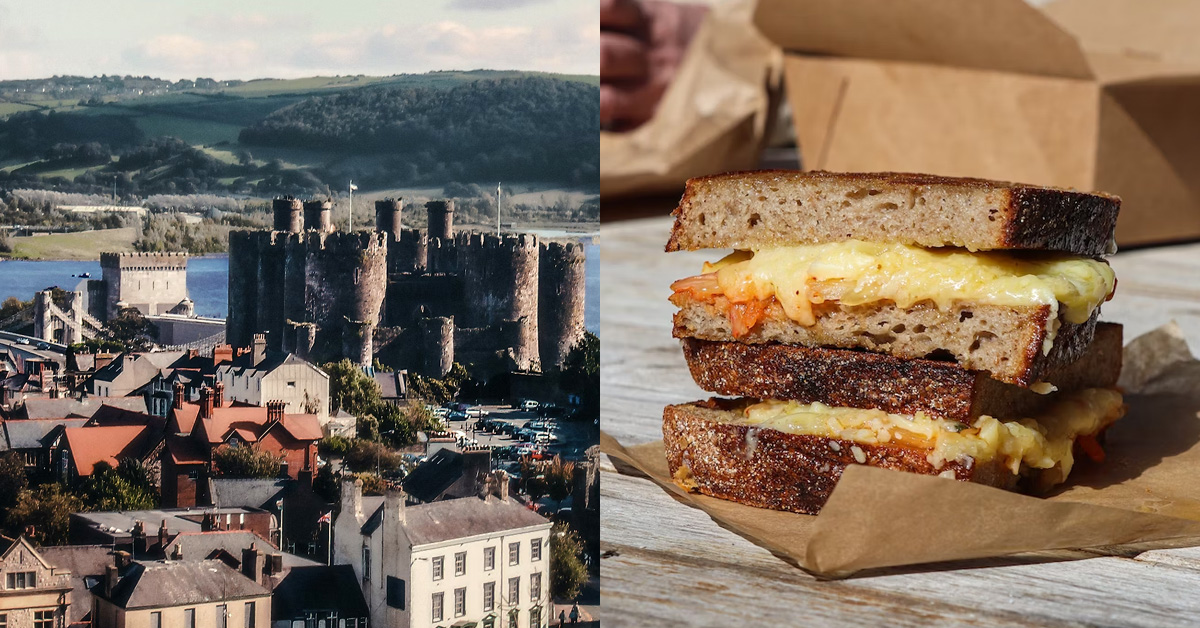Welsh cuisine is a unique blend of traditional and modern dishes that reflect the country’s rich history and culture. The cuisine is heavily influenced by the country’s geography, climate, and agricultural practices. Wales is known for its fresh seafood, lamb, and beef, as well as its dairy products, such as cheese and butter.
The country’s traditional dishes include cawl, a hearty soup made with meat and vegetables, and Welsh rarebit, a savory cheese sauce served over toast. In recent years, Welsh chefs have gained international recognition for their innovative and creative approach to cooking, using locally sourced ingredients to create modern dishes that showcase the best of Welsh cuisine.
Is Welsh food halal?
Is Welsh food halal?
Some Welsh foods may be halal, but it depends on the ingredients and preparation methods used. For example, dishes made with lamb or beef may be halal if the meat is sourced from a halal-certified supplier and prepared according to halal guidelines.
However, dishes that contain pork or alcohol would not be considered halal. It is important to check with the restaurant or supplier to ensure that the food is halal before consuming it.
What kind of food do Welsh eat?
The traditional Welsh cuisine includes dishes such as cawl (a hearty soup made with meat and vegetables), Welsh rarebit (a cheese and bread dish), laverbread (a seaweed-based dish), bara brith (a fruit loaf), and Welsh cakes (a type of sweet scone).
Other popular dishes include lamb and beef dishes, seafood, and cheese. Modern Welsh cuisine also incorporates international influences and a variety of vegetarian and vegan options.
How can you tell if the food is halal in Wales?
There are several ways to determine if the food is halal in Wales:
- Look for halal certification: Many halal food products in Wales are certified by recognized halal certification bodies such as the Halal Food Authority (HFA) or the Muslim Food Board (MFB). Look for their logos on the packaging or ask the restaurant or store if they have halal certification.
- Ask the supplier or restaurant: If you are unsure about the halal status of a particular food item, ask the supplier or restaurant if the food is halal. They should be able to provide you with information about the source of the meat and any halal certification they may have.
- Check the ingredients: If you are buying packaged food, check the ingredients list to see if any non-halal ingredients are listed. Common non-halal ingredients include gelatin, pork, and alcohol.
- Look for halal symbols: Some food products may have halal symbols on the packaging, such as the letter “H” or a crescent moon and star. However, it is important to note that not all halal products may have these symbols.
- Visit halal-certified restaurants: If you are looking for halal food in Wales, consider visiting halal-certified restaurants or halal food markets. These establishments are more likely to have a wide range of halal food options.
Is it hard to find halal food in Wales?
According to research, it may be challenging to find halal food in some areas of Wales, especially in rural areas. However, in larger cities such as Cardiff and Swansea, there are several halal restaurants and grocery stores available.
It is always best to research and plan ahead to ensure that halal food options are available.
Is Welsh food healthy?
Welsh food can be healthy, but it can also be quite indulgent and high in calories. Traditional Welsh dishes such as cawl (a hearty soup/stew), bara brith (fruit bread), and Welsh rarebit (cheese on toast) can be nutritious if made with fresh, whole ingredients and consumed in moderation.
However, other popular Welsh foods like laverbread (seaweed paste), Glamorgan sausages (vegetarian sausages made with cheese and breadcrumbs), and Welsh cakes (sweet griddle cakes) are higher in fat and calories.
As with any cuisine, it is important to make informed choices and balance indulgent dishes with healthier options.
What is Welsh food similar to?
Welsh food is similar to British and Irish cuisine, with a focus on hearty, comforting dishes made with local ingredients such as lamb, beef, seafood, potatoes, and vegetables.
Some popular Welsh dishes include cawl (a meat and vegetable stew), Welsh rarebit (a cheese and bread dish), laverbread (a seaweed-based dish), and bara brith (a fruitcake).
Steps to find halal food in Wales
Here are some tips to find halal food in Wales:
- Research halal restaurants and food establishments in Wales: Use search engines, social media, and online directories to find halal food options in Wales. You can also ask for recommendations from friends, family, or local Muslim communities.
- Check for halal certification: Look for halal certification logos or symbols on the restaurant or food establishment’s website, menu, or storefront. This indicates that the food is prepared according to Islamic dietary laws.
- Ask the restaurant staff: If you are unsure about the halal status of a particular food item, ask the restaurant staff. They should be able to provide you with information about the ingredients and preparation methods.
- Read food labels: When shopping for halal food in supermarkets or grocery stores, read the food labels carefully. Look for ingredients that are halal-certified or permissible according to Islamic dietary laws.
- Visit halal food markets: Halal food markets are a great place to find a variety of halal food options. These markets often sell halal meat, poultry, and other food items that are difficult to find in regular supermarkets.
- Use halal food apps: There are several halal food apps available that can help you find halal food options in Wales. These apps provide information about halal restaurants, food establishments, and grocery stores in your area.
- Join halal food groups: Joining halal food groups on social media platforms can also help you find halal food options in Wales. These groups often share information about halal food events, restaurants, and food establishments in the area.

